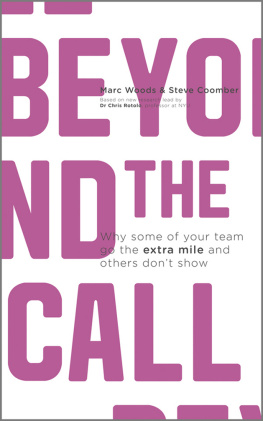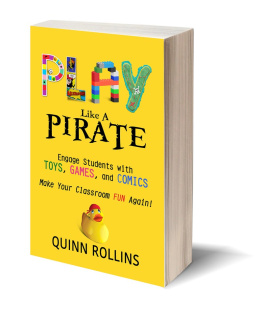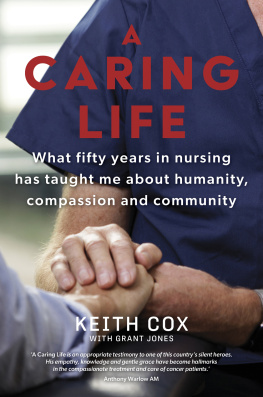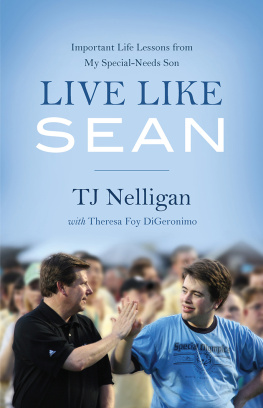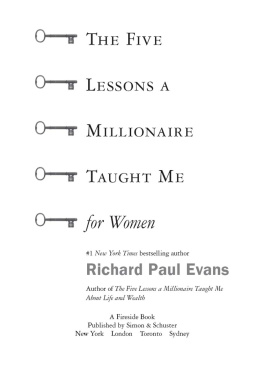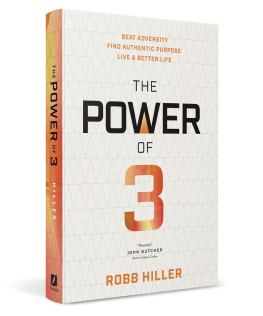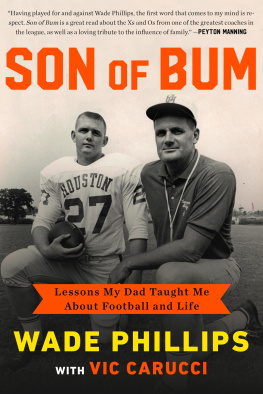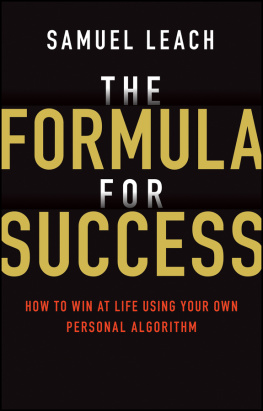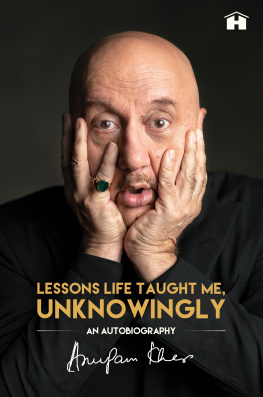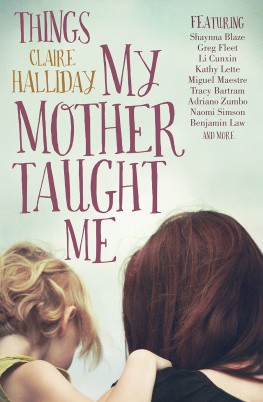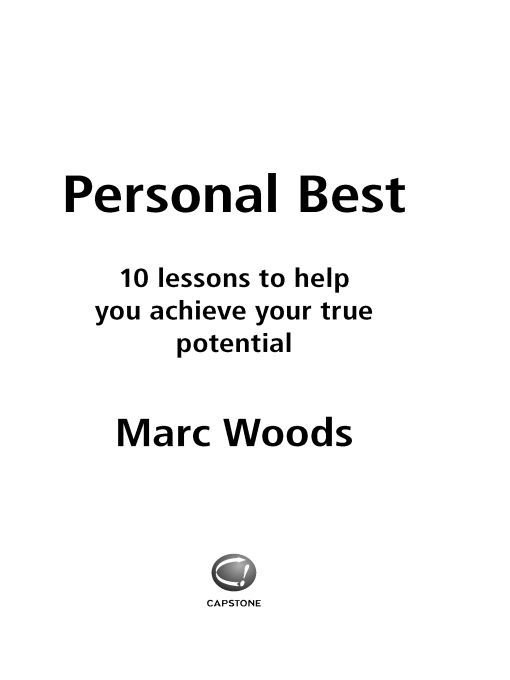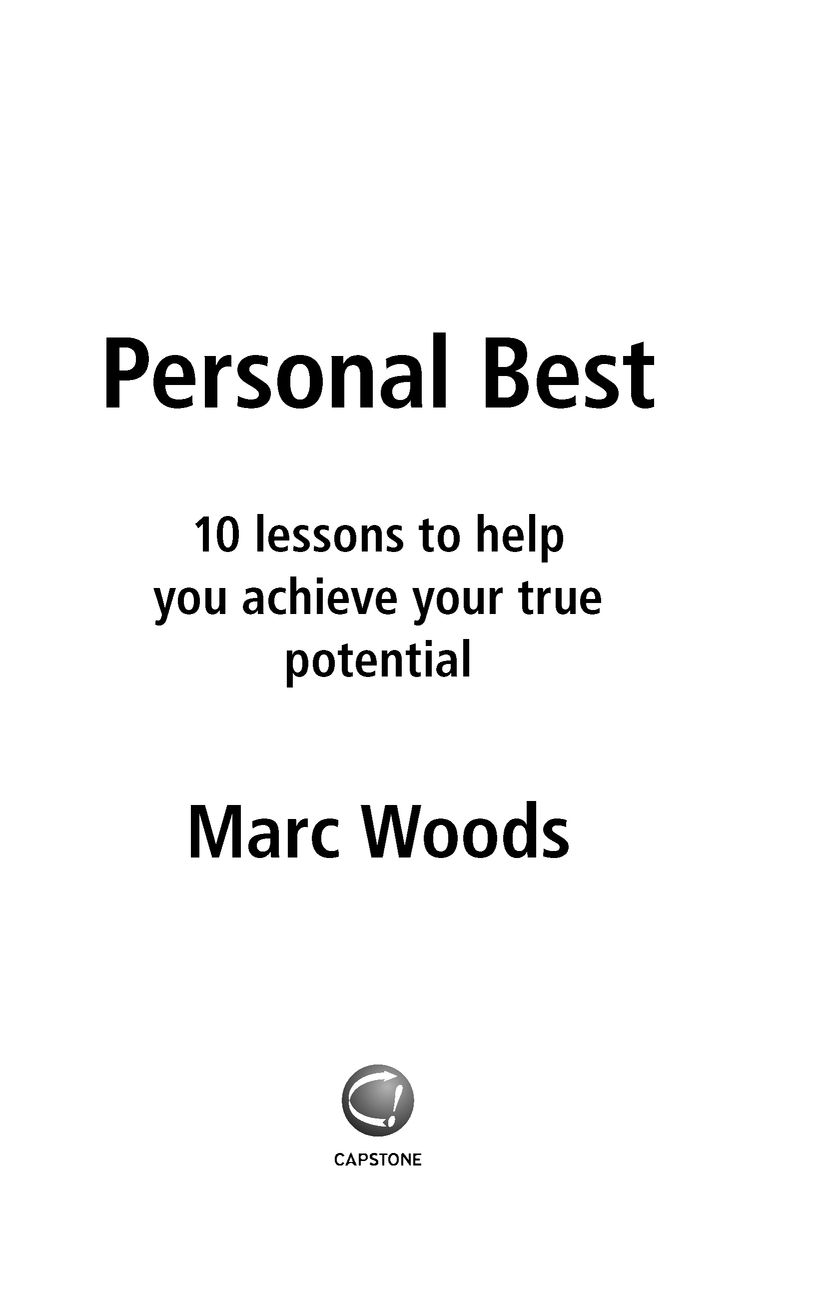Table of Contents
For my Mum, Dad and brother
Acknowledgements
Firstly I would like to say thank you to John Moseley and his team at Capstone for suggesting this book, and to Des Dearlove and Stuart Crainer for their advice on its structure.
For their generosity in sharing their knowledge, experience and insights, I am indebted to the contributors Jeanie Baker, Richard Cullen, Richard Davies, William Deeley, John Dunne, Professor Tim Eden, Donna Fraser, Lesley Garside, Ali Gill, Matthew Heath, Lars Humer, Kumar Kamalagharan, Georgina Lee, Giles Long, Petra Markell, Sheelagh Rodgers, Richard Shaw, David Thomas and Etienne de Villiers.
Steve Coombers input has been absolutely invaluable. His ability to ask the right questions, make sense of my answers and understand how it would all fit together has helped turn what was a good first manuscript into what I hope the reader will consider is a quality final product.
Finally, I would like to thank my Mum, Dad and brother, without whom I would have never understood the concept of striving for my own personal best.
Preface
It is not the mountain we conquer but ourselves.
Sir Edmund Hilary
My life might have been so different.
Have you seen the film Sliding Doors? Its a film that explores one of those big questions in life: what if? In the film we see what is and what might have been. The main character is sacked from work and sets off for home via the London Underground: in one version of her life she catches a Tube train; in the other version, she misses it. An arbitrary event the time she arrives at the train platform sends her life in two totally different directions, and the audience gets to see how both versions play out.
Countless events shape the course of our lives, some significantly, some less so. And, as we get older, who doesnt look back on life and reflect on how things might have been? What would my life have been like if Id passed that exam? If Id not lost that job? If I hadnt met the person I married?
The question I always come back to is: what would my life have been like if I had not got cancer? I think I know the answer.
In my life without cancer, I make the passage from teenager to adult like any other ordinary teenager, untroubled by responsibility, unburdened by cares. Average at school, I remain average at college; I get an average job and I tick along, making do, getting by. I get a family, a house and a mortgage.
The one escape in my life is swimming. I was a good swimmer as a boy and I remain a good swimmer. A countylevel swimmer but never an excellent swimmer. Because that kind of excellence requires the kind of commitment that an average teenager just doesnt have. Not me, anyway. So, all in all, ordinary person, ordinary life.
Like Sliding Doors, the what is version of my life is in stark contrast to the what might have been version. Not for me the carefree years of teenage irresponsibility. Oh no. In this one Im minding my own business when I get a swollen ankle. So what?, you say. Well, somehow, the swollen ankle turns into cancer. Not just any cancer either, but a nasty virulent cancer of the bone. The doctors tell me that if I dont have part of my leg amputated, Ill die. And if I do, I might still die Ill have a 50-50 chance, instead of no chance. So, minus part of my leg, I endure six courses of chemo and survive.
The one escape in my life is swimming. A good swimmer as a boy, I become an excellent swimmer-a member of the British swimming team and a highly competitive, motivated, committed athlete. My brush with mortality, ironically, makes me realize that I am capable of much more than I ever imagined. I set myself some tough challenges and I achieve them. I knuckle down, strap myself in, and ride lifes rollercoaster. I win gold, silver and bronze medals. More than that, I climb mountains, do charitable work I even write a book. Ordinary person, extraordinary life. Well, halfway there, maybe.
Do I regret the way my life has turned out? No, not for a minute. Im not going to say cancer is the best thing that ever happened to me. Thats too glib, too easy. I wouldnt wish what Ive been through on anyone else.
But having cancer has made me a better person. Its taught me to approach life in a different way. Its taught me to measure myself against my potential and not against others. It has taught me about personal responsibility: that life is about being the best person you can be and a lot more besides.
If you are lucky, life teaches you what you dont learn at school. Ive been very lucky. Ive learnt some tough but invaluable lessons about life on my journey. Id like to share those lessons with you.
Marc Woods
INTRODUCTION
My life in brief
SUMMER 1985
One Saturday, at the start of my summer holidays, my ankle becomes swollen and is painful to walk on. The most energetic things I had done was to drink a cup of tea and watch television. Over the following months I go through numerous diagnostic processes and am eventually told that, aged 16, I have a type of arthritis.
CHRISTMAS 1986
For over a year I hobble around, my left ankle gradually getting worse and starting to collapse. A new round of appointments with specialists and doctors begins. When Im sent for a bone biopsy, I realize that whatever is happening must be pretty serious. By this time I just want to find out what is wrong. Two weeks before Christmas, I find out. I have cancer.
I have to have my leg amputated. Christmas flies by, punctuated by gatherings of concerned looking family members and more tests, this time at an oncology centre. I spend a lot of time thinking about what I will and wont be able to do in the future as an amputee.
NEW YEAR 1987
My first five-day-long chemotherapy session straddles the New Year celebrations. On the afternoon that I enter the hospital, I still have very little idea of what chemotherapy might feel like, or what it will mean to me.
Within six hours of starting the treatment, I understand the language of chemotherapy. The cancer might kill me in the long run, but the chemotherapy feels like it is trying to kill me right now.
JANUARY 1987
Amputation day approaches: 20 January 1987.
Talking to my father before the operation, I want to find something I am able to do with one leg. Swimming seems to be the answer. I was a county swimmer before and I should be able to swim with one leg. Perhaps there are competitions especially for amputees. Before I even have my operation, my father enters me for the National Swimming Championships for the Disabled the following June!
The amputation happens and I deal with it in my own way. The pain is not as all-consuming as I feared, but the phantom pains are both alarming and unpleasant. I celebrate my 18th birthday on 1 February, at the mercy of my phantom pains.
JANUARY-JUNE 1987
The chemotherapy continues to grind away at me, sapping my strength, testing my resolve.
Meanwhile, I have my artificial limb fitted.
MAY 1987
Outside the cancer ward, Im desperate to keep hold of some level of normality. I go to see the school compete at a swimming gala.


